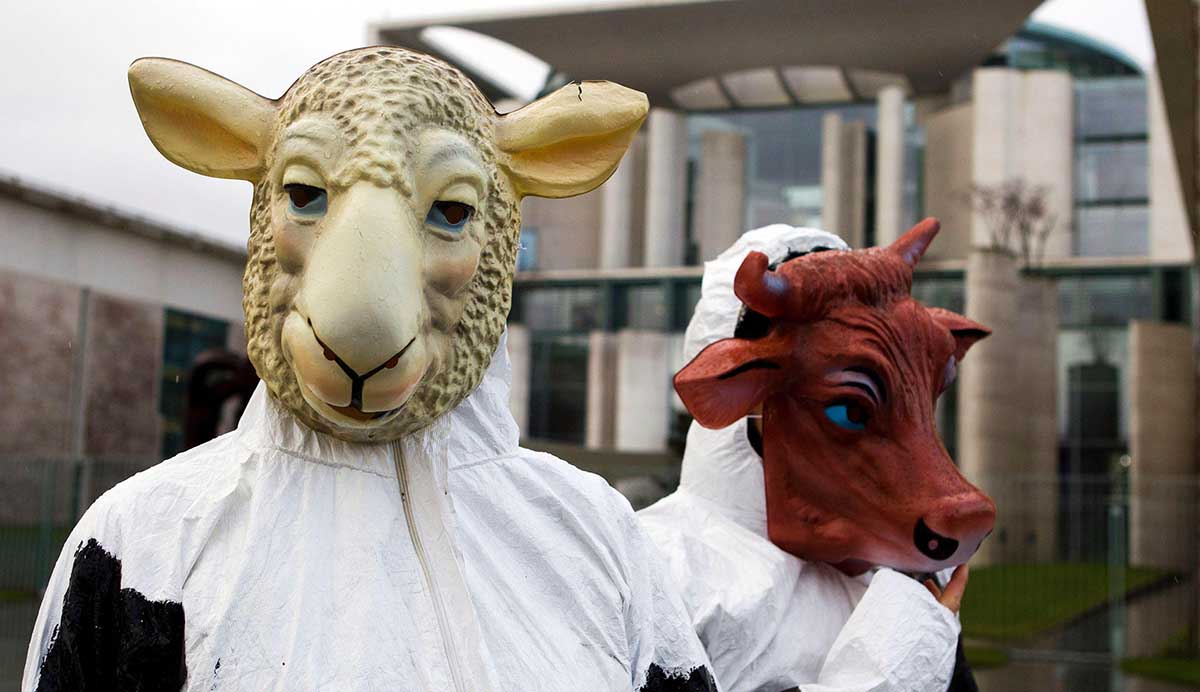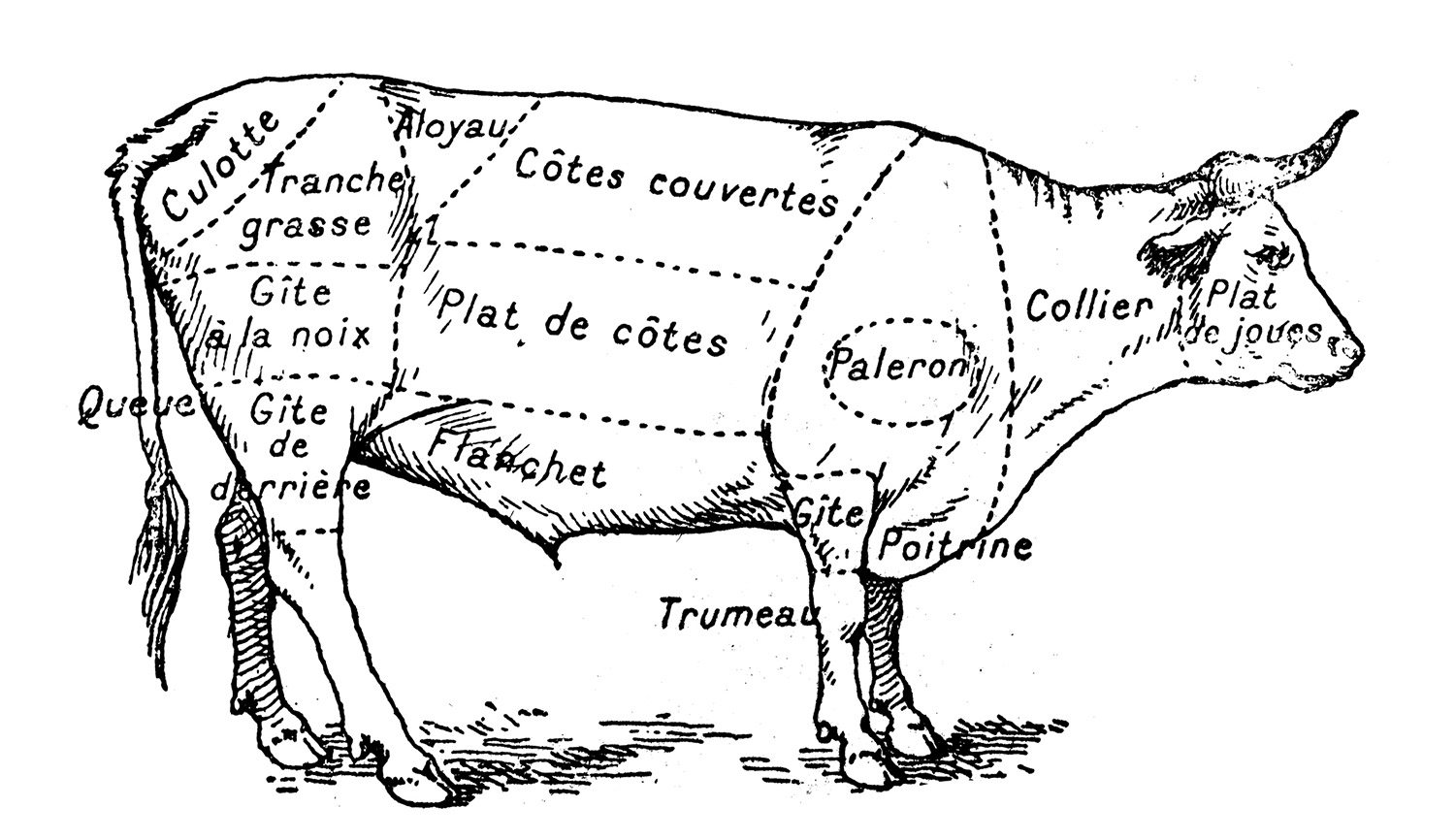Jews are leaving Europe at an increasing rate. Between 1970 and 2020, the Jewish population of the European Union declined by 16 percent, with emigration playing a significant role. From 2015 to 2019, the number of immigrants to Israel from Belgium, the Netherlands, and the Nordic countries was 50 percent higher than it had been fifteen years before, according to a study from the Institute for Jewish Policy Research. In France, Germany, Austria, and Greece, it was 2.5 times higher. In Italy and Spain, five times higher.
Given this grim trend, one would think that European leaders would do everything possible to guarantee the rights and well-being of the continent’s Jewish population. But in important respects, the opposite has been the case. In recent years, shechita, the method of slaughter prescribed by Jewish law, has come under threat—not just from popular majorities, but from the rulings of judges who see themselves as upholding European values and minority rights.
What stands behind these moves? As Eric Mechoulan suggests, they reflect in part a longstanding hostility to Jewish practice, informed by the historic legacy of Christianity. Yet the most immediate cause may be something very different: the continent’s loss of its Christian identity. For as Christianity has receded, a movement has grown to invest culinary life with a moral meaning that runs counter to Christianity as well as Judaism.
Kosher slaughter has been challenged in part because of anxieties surrounding Muslim integration, which have led to calls to ban halal as well as kosher slaughter. But the issue of kosher slaughter deserves consideration on its own terms, in part because modern opposition to it is older than, and is likely to outlast, these recent controversies.
In 2019, the Court of Justice of the European Union ruled that meat slaughtered in accordance with Jewish law could not be labeled organic, because kosher slaughter failed to ensure that suffering had been “kept to a minimum during the entire life of the animal, including at the time of slaughter.” The court endorsed the practice of “stunning,” a euphemism that describes everything from piercing the head of a cow with a metal bolt, to gassing a pig, to electrocuting a chicken. Kosher slaughter, by contrast, involves the rapid cutting of the animal’s neck with a sharp blade wielded by a specialist trained in Jewish law.
In issuing its opinion, the court cited a regulation holding that “animal welfare is an EU value.” Though the court’s judgment was relatively limited, its underlying logic was far-reaching. If kosher slaughter fails to guarantee animal welfare, and animal welfare is an EU value, then the practice of the Jewish faith is in this respect incompatible with being European.
In 2020, the court followed this logic a step further by upholding Belgian laws that ban kosher slaughter. It justified its decision in part by noting that animal welfare was “a value to which contemporary democratic societies have attached increasing importance for a number of years.” The court claimed that the Belgian laws appropriately balanced this value with protection of religious liberty. The judges confidently assumed that Jewish practices were at odds with animal welfare because they fell short of what the opinion described as the most “up-to-date” methods.
Kosher slaughter arises from, and reflects, a tradition with a deeply humane attitude toward animals. Attempts to depict it as cruel thus entail misrepresentation not just of a particular act but of an entire faith. Jewish law prescribes that animals, as well as men, must be given rest on the Sabbath day (Exodus 20:10). It forbids taking a newly born animal from its mother for the first seven days (Leviticus 22:27) and prescribes that no animal can be killed on the same day as its mother (Leviticus 22:28). It states that one may not muzzle an ox while it treads grain (Deuteronomy 25:4) and enjoins relieving overloaded animals, even if they belong to one’s enemy (Exodus 23:5). Rabbinic authorities have even read a verse of Deuteronomy (“And I will send grass in thy fields for thy cattle, that thou mayest eat and be full”) as an injunction to feed one’s animals before feeding oneself.
The absurdity of the European judges’ attitude is heightened by the fact that the European Union condones bullfights and hunting, in part because these practices are regarded as traditional. The suggestion seems to be that these practices (which I for one support) are properly European, whereas kosher slaughter—which has been practiced on the continent for millennia—is not.
Yet the judges hit on something important when they noted that animal welfare is a growing concern in Europe. Opposition to kosher slaughter has not been so intense since the 1930s and 1940s, when the German government outlawed the practice, extended that ban to its conquered territories, and depicted kosher slaughter in highly critical terms, most notably in the notorious film Der Ewige Jude. Then as now, responsible officials couched their opposition to kosher slaughter in terms of animal welfare and respect for nature, even putting out images of the country’s leader feeding fawns from the palm of his hand.
Contemporary opposition to kosher slaughter differs in significant ways from the form that swept Europe in the 20th century. In the former, “animal welfare” was invoked to justify a direct and deliberate campaign against Jews. Today, “animal welfare” is the watchword of a softer and more diffuse program of cultural change. It is cited to justify a re-spiritualization of cuisine, a “progressive” analog of kashrut. This represents a challenge not only to Judaism, but to Christianity.
We should not be surprised to find attempts to regulate culinary life increasing where Christianity is under attack or undergoing decline. For Christianity is exceptional—and in the eyes of some, perverse—in its insistence that what makes a man clean or unclean is not what he puts into his mouth, but what comes out of it. Christianity challenged both Judaism and ancient paganism by separating culture and religion in a process that the French scholar Remi Brague has called the “Pauline revolution.” Christians insisted that it was not the clothes a man wore, the food that he ate, or the state of his flesh, that marked him as part of the people of God, but his incorporation into the body of Christ. This insistence stood in contrast to the instinct—shared by many cultures—to regard the way one eats as a sign of whether or not one belongs to the community.
This Christian view has often been expressed in polemical terms directed against Jews. For instance, the Epistle of Mathetes to Diognetus, a Christian text written near the end of the 2nd century, condemns kosher observance and circumcision as “utterly ridiculous and unworthy of notice.” The disagreements between Jews and Christians on these topics should not be denied—or exaggerated. Christians hold that God does not define a proper way to prepare food (although some have argued that the laws given to Noah should apply). The Christian position, therefore, is that kosher slaughter is unnecessary, not that it is wrong and should be prohibited. Europe, in the name of animal welfare, is moving in a very different direction. In the name of “European values,” the EU is articulating a set of culinary rules that it claims to be universally binding, rules that prohibit Jewish practice.
Such an insistence runs counter to the Christian tradition, which at its best preaches culinary tolerance. As the Epistle of Mathetes observes in a less strident passage, “Christians are distinguished from other men neither by country, nor language, nor the customs which they observe.” Far from believing that there is only one correct way to eat, Christians follow “the customs of the natives in respect to clothing, food, and the rest of their ordinary conduct.” Christians cannot endorse the religious rationale for kosher observance. But they have equally strong reasons to reject the present attack on it.
Submission to the divine nomos is humanizing. This truth is embodied in Jewish life in a particularly vivid way. For the man who keeps kosher is reminded with every bite of the Creator who gave him life. We Christians do not adopt the full scope of Jewish law, but along with Jews we affirm that obedience to God makes us human. This shared affirmation is utterly opposed to post-Christian outlooks that celebrate nature, the organic, and tradition without any reference to God above. These viewpoints venerate nature in a way that denigrates man. They seek to reduce animal suffering by restricting the rights of men, and finally to reduce human suffering by endorsing euthanasia. They confirm the words of Hosea, who once observed that “those who offer human sacrifice kiss calves.”
More about: Jewish World, Politics & Current Affairs







